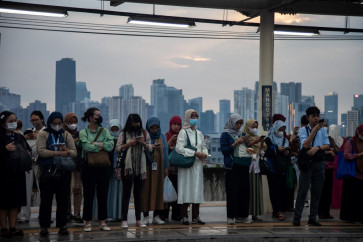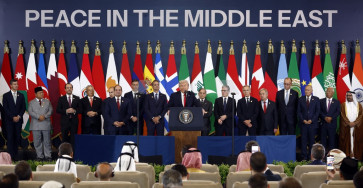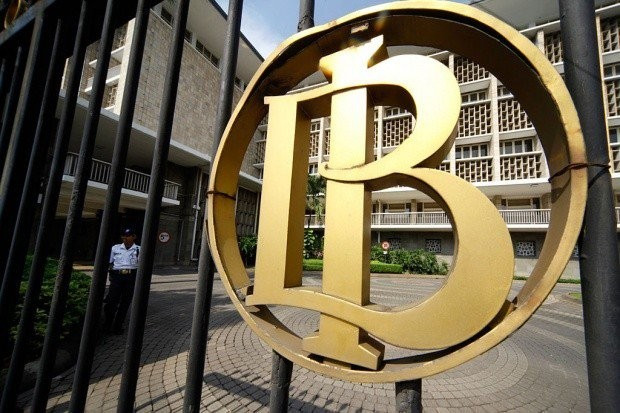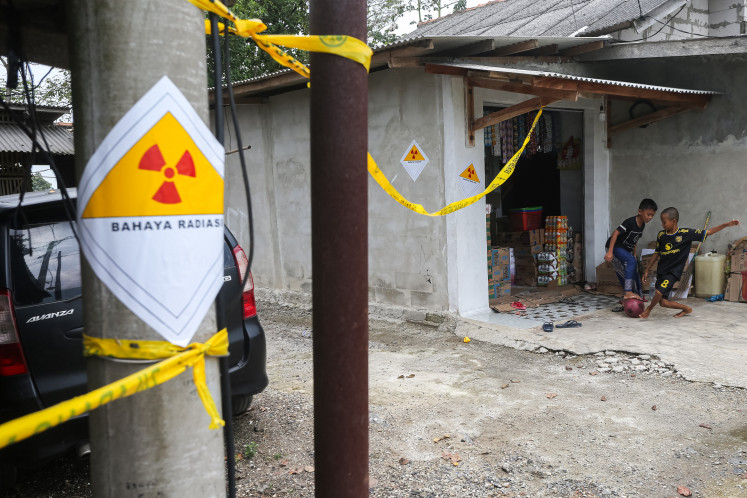Popular Reads
Top Results
Can't find what you're looking for?
View all search resultsPopular Reads
Top Results
Can't find what you're looking for?
View all search resultsInsight: The world needs justice: A lesson from Indonesia
The year 2015 was set by the members of the United Nations in 2001 as the target for fulfilling the targets agreed to in the Millennium Development Goals (MDGs) for eliminating extreme poverty
Change text size
Gift Premium Articles
to Anyone
T
he year 2015 was set by the members of the United Nations in 2001 as the target for fulfilling the targets agreed to in the Millennium Development Goals (MDGs) for eliminating extreme poverty. While many of the MDGs may not be achieved by the deadline, the world can take pride in the significant progress that has been made to date.
In particular, extreme poverty has been greatly reduced in many countries, including Indonesia. The focus has now turned to working out a new framework for global development, to continue advances while ensuring that gains already made are not undone.
Access to justice and good governance must be an integral part of any such discussion: They are essential to ensuring that progress is made on other fundamental development goals, such as promoting gender equality and ensuring environmental sustainability. Without access to justice and good governance, the gains that have been made will be tenuous at best. Without access to justice, a government can withhold basic rights and services and leave the average citizen with no peaceful way of to challenge its actions.
Many say that these principles are more than safeguards for progress in areas such as health and education and have been absolutely essential for real development that reaches everyone. This is evident, as the countries that have lagged in the realization of the MDGs have also been those with the greatest problems with access to justice and good governance.
In Indonesia, the government has demonstrated its understanding of the integral role of access to justice in equitable development through its launch of a comprehensive National Strategy on Access to Justice in 2009. Previous attempts to implement access to justice programs have placed too much emphasis on a “top down” approach: developing national government institutions such as police, courts, prosecutors and legal aid offices, among other things. The visionary strategy drew strength from community-level experiences, emphasizing ways of giving vulnerable citizens a voice, such as legal education, paralegals and by strengthening local civil society organizations. This has been implemented to meet the specific needs of the Indonesian context, striving to implement global principles at the local level.
The Indonesian national strategy was created with the understanding that access to justice is a critical means of eradicating poverty and explicitly acknowledges the human rights dimensions of poverty. That means it focuses on legal aid, local governance, land and natural resources and access to basic services. It represented a shift away
building up government institutions, toward pro-poor and inclusive development that has been line with the government’s commitment to improving social and economic justice.
This is being done by integrating the principles of the national strategy in everything the government has done to promote development. The strategy, now part of the Mid-term Development Plan, is, sending a clear signal that access to justice needs to be prioritized and given the budget resources required.
This has led to action: We have seen a comprehensive review of local regulations that are biased against women, an acceleration of the process for obtaining compensation by victims of labor abuse and violence and the development of minimum standards of public services to monitor government’s performance. The latter places a greater emphasis on social justice in legal education and the promotion of due care, transparency and accountability in state institutions.
Another great example of the strategy’s success was the adoption of the pro-poor National Legal Aid Law in 2011. The law endorsed state support for community paralegals, providing legal support to the poorest members of society and opened up the process of setting legal aid procedures and regulations. These policy actions will help ensure that citizens are able to claim their rights across various areas, such as healthcare, education and labor.
Access to justice in Indonesia is about ensuring that each citizen has the ability to claim their rights under the law, through fair, equitable and transparent interaction with government. The national strategy encapsulates this thinking and will lead to significant and permanent human development beyond 2015.
We believe our experience in Indonesia can provide a valuable model for the world. While the global dialogue on the post-2015 priorities is encouraging, it is useful to move beyond the rhetoric and provide a real vision of what justice means in practice for development by mainstreaming access to justice and good governance in the Post-2015 Development Framework.
They also need concrete targets and indicators to ensure commitments and allocation of resources to implement it. Without this, we will only repeat the mistakes of the MDGs and will not achieve significant results in the future. President Susilo Bambang Yudhoyono is co-chairing the High level panel of eminent persons on the post-2015 process, which will report back to the UN Secretary-General Ban Ki-moon later this year. The President is best placed to promote the best practices from Indonesia, developed under his leadership, as the post-2015 framework takes shape at a meeting in Bali later this month.
The writer is a former member of the UN Commission on Legal Empowerment of the Poor and the Commission for MDGs in Asia and the Pacific.










